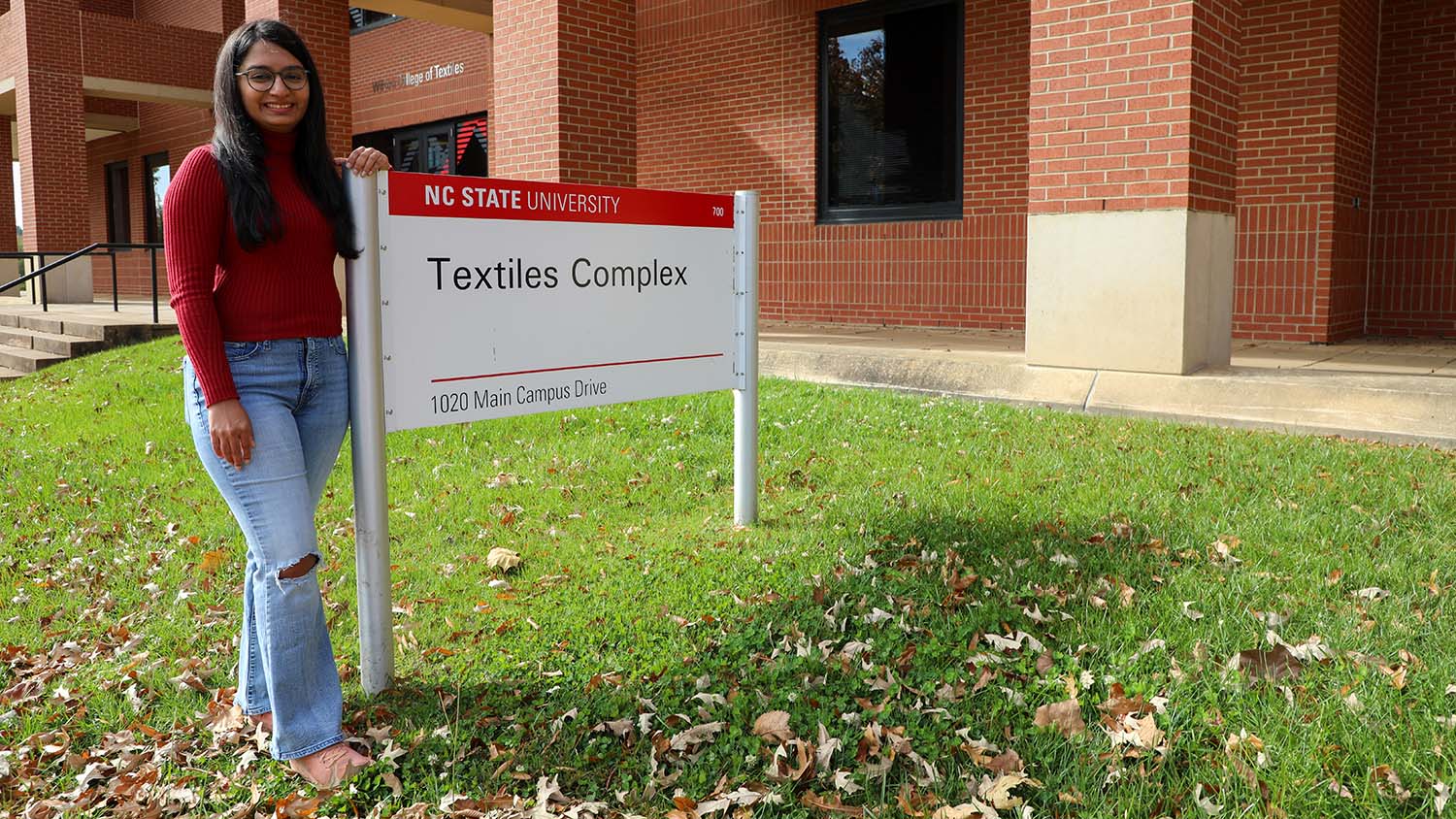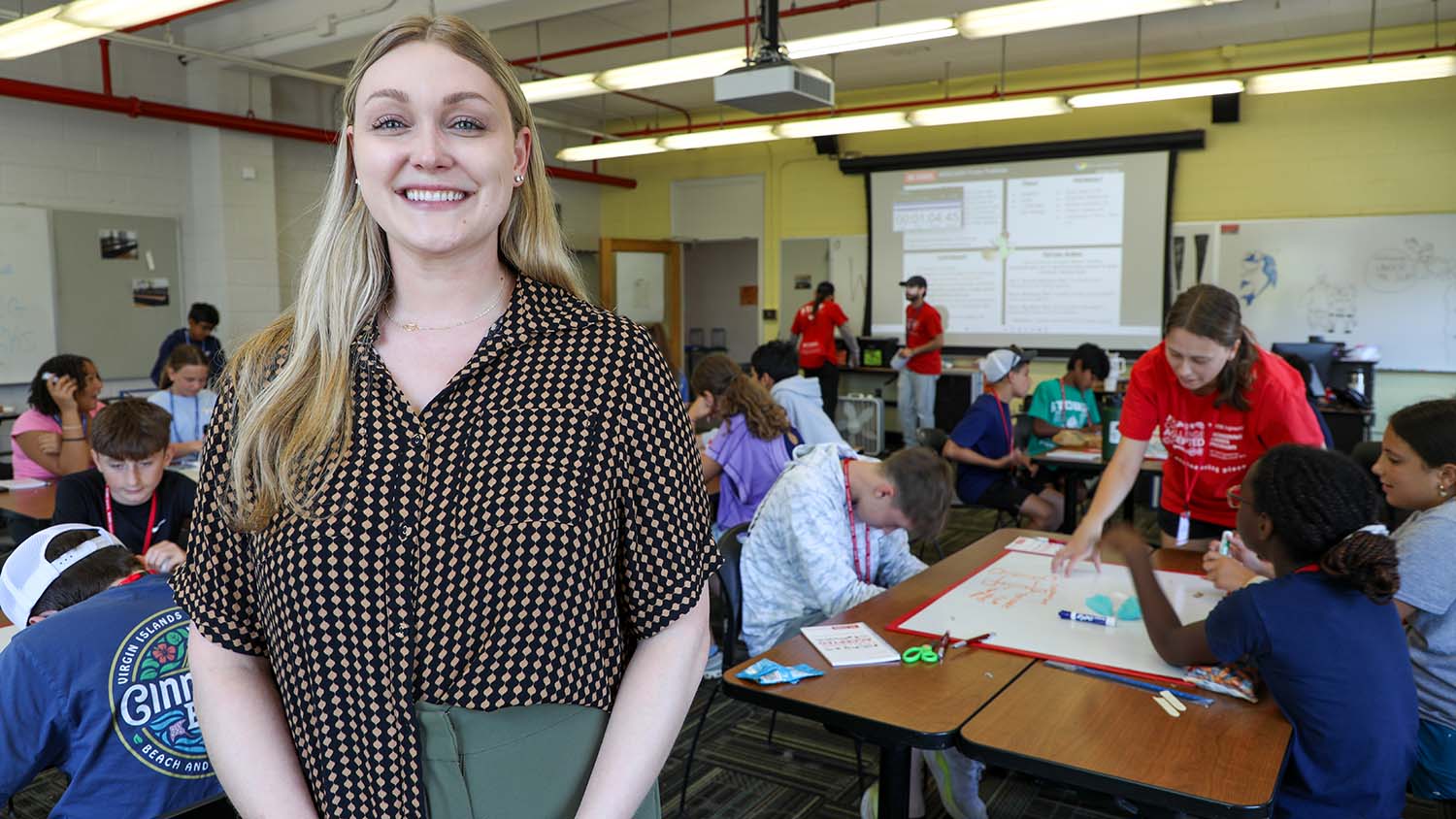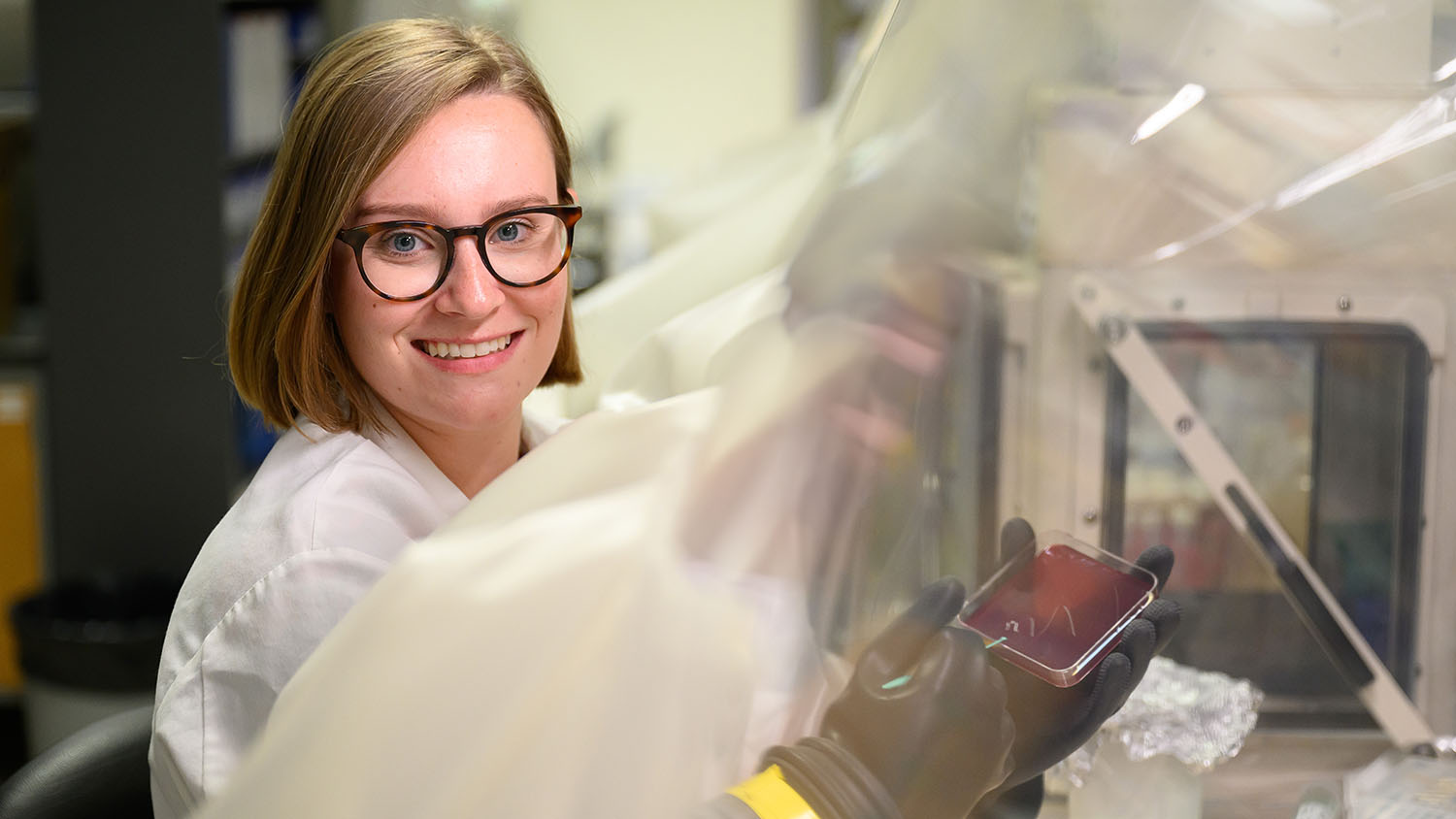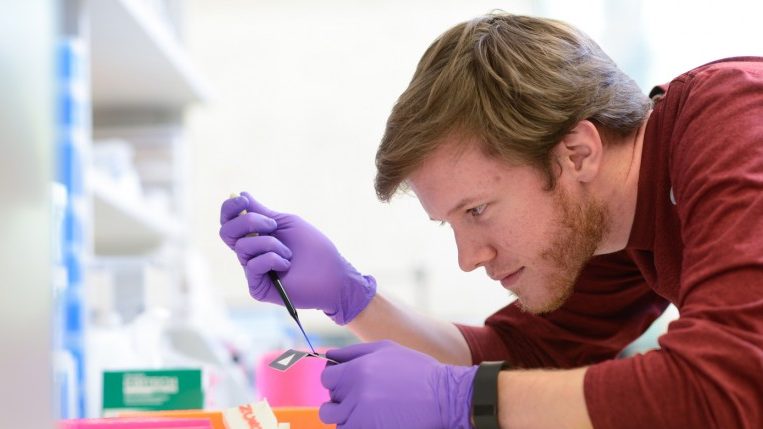Prateeti Ugale is a Ph.D. candidate in the fiber and polymer science program at NC State University’s Wilson College of Textiles. She conducts her research in the SHIFT Lab under the guidance of Dr. Amanda Mills, focusing on advancing electronic textiles (e-textiles), especially interconnects. Her work aims to integrate soft, stretchable, and durable conductive materials into multilayered textile structures to create novel wearable interconnects. Before beginning her Ph.D., she earned her Master of Science degree from Wilson College of Textiles as well and went on to work in the textile industry for about three years. During that time, she gained hands-on experience in areas such as sourcing fabrics, developing novel sustainable scaffolds, and implantable medical devices. Outside of work, Prateeti enjoys dancing and making jewelry.
Tell us about your journey to graduate school and what led you to NC State.
My journey to graduate school began when I came to the Wilson College of Textiles at NC State University to pursue my master’s degree in Textile Engineering. After graduating and spending three years working in the U.S. textile industry, I realized I wanted to push the boundaries of what textiles can do and make them more functional. I have always had a deep fondness for research, so coming back to NC State felt like the natural choice. Moreover, the Wilson College of Textiles has been a global leader in textile innovation for more than 120 years, and I knew it was the perfect place to continue my journey. That’s what led me to pursue my Ph.D. here, where I now work on wearable electronics — developing textile-based functional wearable products that blend technology and materials to shape the future of functional textiles.
Tell us about your research and/or teaching experience.
My research lies at the intersection of textiles, materials, and electronics. One of the biggest challenges in advancing electronic textiles is the mechanical mismatch between rigid electronic components and soft, stretchable textile substrates. My work aims to bridge this gap by integrating stretchable and flexible conductive materials directly into multilayered substrates to create lightweight, breathable, and washable functional garments. So far, I have done some exciting work in this area, supported by my advisor and PhD committee members and excellent lab facilities at NC State. Some of my other work has been recognized through awards such as the 2024 AuxDefense Innovation Award in collaboration with Dr. Seonyoung Youn in Braga, Portugal, AATCC Foundation Student Research Support Grant in 2024, and second place in the 2025 Herman & Myrtle Goldstein Graduate Student Paper Competition in Savanna.
Teaching has also been a meaningful part of my journey. I love breaking down complex ideas into something simple and approachable. I have been a TA for the Six Sigma class with about 50 students and for the Textile Electronics class. I have also mentored 5 undergraduate students through the REU program and 2 high school students. This year, our team won first place at 2025 Advanced Textile Association (ATA) Student Design Competition for developing a functional garment that alerts outdoor workers to heat stress — a great example of how collaboration makes research even more rewarding.
How has the Graduate School and/or NC State helped you with your professional development?
The Graduate School and NC State have greatly supported my professional development by providing access to world-class resources, mentorship, and opportunities to grow beyond the classroom. I have had the chance to present at international conferences and competitions, participate in the Graduate Research Symposium, compete in the 3-Minute Thesis (3MT) competition, and publish my work in great journals. These experiences have not only strengthened my communication skills but also allowed me to connect with researchers and professionals from NC State and around the globe. In addition to this, opportunities to do an internship and work on sponsored projects have enabled me to translate research into practical solutions and effectively share my ideas with diverse audiences. Overall, these experiences have helped me grow as a researcher, communicator, and professional, preparing me to contribute meaningfully in both academia and industry.
What advice do you have for new or current graduate students?
My advice to new or current graduate students is to stay curious and open-minded. Graduate school can be challenging, but it is also one of the best times to explore, ask questions, and grow — both as a researcher and as a person. Take advantage of the resources around you, such as NC State’s excellent facilities and the guidance of professors and mentors. Collaborate with lab mates and peers from different fields, share your work, and build meaningful connections — some of the best friendships and professional networks you will ever have can be formed during this time.
Don’t be afraid to step outside your comfort zone. Some of the most rewarding ideas come from trying something new or unexpected. At the same time, it is easy to get stuck in your own head or lose momentum. I personally try to live by the principle, embracing action even when conditions aren’t perfect. As Amelia Earhart said, “The most difficult thing is the decision to act, the rest is merely tenacity.” Take initiative, learn along the way, and persist toward meaningful results.
Finally, take care of yourself and enjoy the process. Participate in Graduate School and NC State University activities, engage with the community, and make lasting memories. Research can take time, but every small step counts, and looking back, you will realize just how much you have grown.
What does being an NC State graduate student mean to you?
Being an NC State graduate student means being part of a vibrant community of innovation, collaboration, and learning. To me, it is not just about conducting research, but about growing as a problem-solver, storyteller, and contributing to work that can have a real-world impact. Being an NC State graduate student is both privilege and responsibility: the privilege of learning in a supportive, high-caliber environment, and the responsibility to contribute to the community and advance knowledge in ways that matter.
Fun fact about yourself.
I know over fifteen dance styles — basically, I am ready to dance my way out of any situation!



